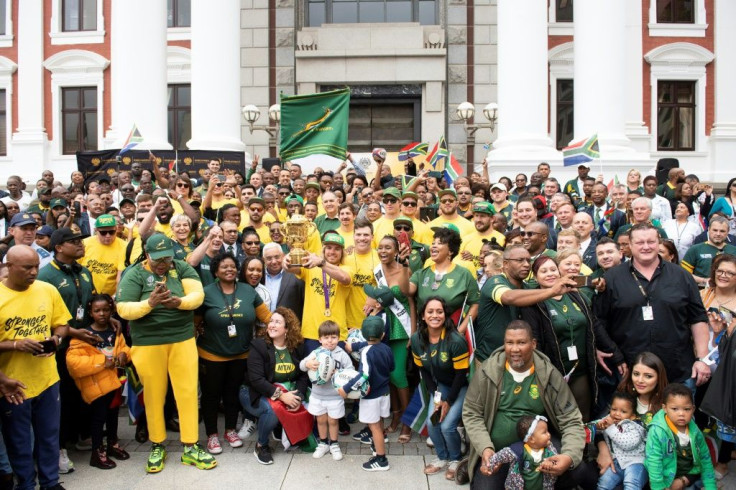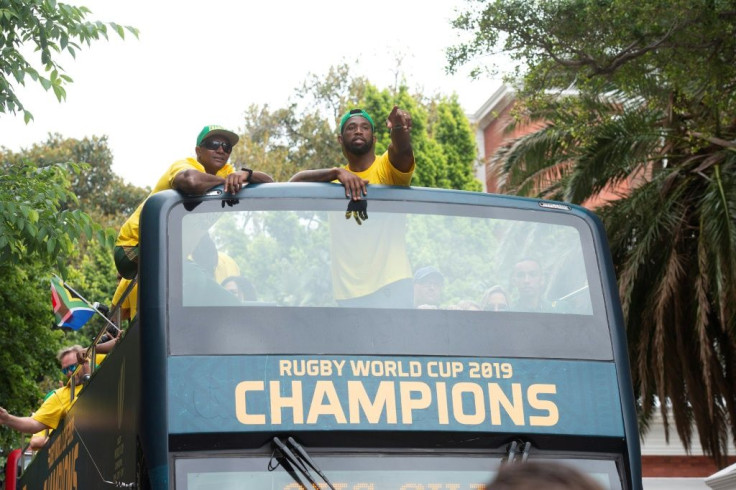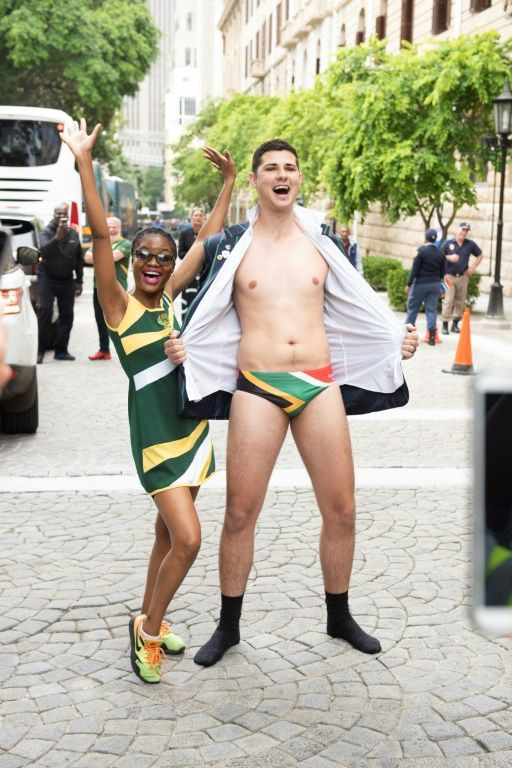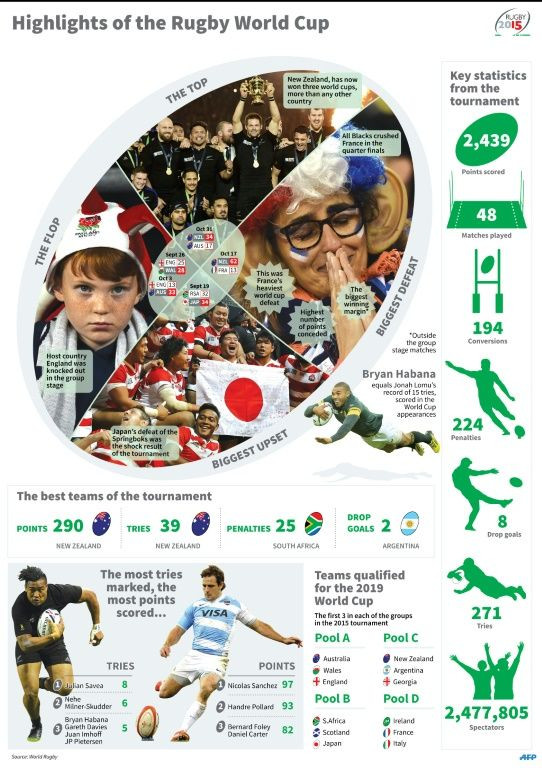Springboks Celebrate Victory At Legendary Mandela Site

South Africa's rugby stars on Monday hoisted the World Cup before thousands of ecstatic fans at Cape Town's City Hall, where Nelson Mandela made his first speech after his release from prison.
The Springboks' final stop on their victory tour pounded home the message of unity in a country still nursing the wounds of apartheid a quarter-century after its end.
"Look how we are all different, different races, different backgrounds, and we came together for South and we made it happen," Siya Kolisi, the Springboks' first black Test captain, told thousands of fans.
"I'm saying to you today, just take a look around you, there is different races, different people with different backgrounds, but look how you are making it special for us."
"It's time for us South Africans to stop fighting, to stop arguing... and move forward as a country," he said, to wild applause from fans in the vast square.
It was in that same square in front of City Hall on February 11, 1990, that Nelson Mandela spoke to euphoric crowds hours after his release from 27 years in prison.
That was Mandela's first major speech as a free man and a key moment in South Africa's rebirth as white-minority rule crumbled.

The Springboks beat England 32-12 victory against England in Japan on November 2, earning their third world crown in rugby's paramount tournament.
But this team broke new ground, being the most racially-mixed in a national sport which was once the preserve of the white elite.

Earlier Monday, the Springboks visited anti-apartheid icon Archbishop Desmond Tutu, who sported a green Springbok jersey.
"What this group of youngsters has achieved speaks, beyond rugby, to the possibility of what we can be. No matter where we come from, if we reach for the stars, we can actually touch them," said Tutu in a statement.
Dwarfed by most of the squad, Tutu appeared particularly impressed by Trevor Nyakane and Tendai Mtawarira's size -- while scrum half Faf de Klerk gave the archbishop a glimpse of his "famously patriotic underwear he revealed to Prince Harry after winning the cup" eight days earlier, said the statement.

The Springbok also met lawmakers outside the parliament building.
The speaker of the legislature, Thandi Modise, told the triumphant squad: "You have enabled South Africa to recall who we are".
"You have again made us able to forget our racial tensions, to forget the gender-based violence and to focus on that which makes us great as South Africa."
She urged them to "continue to unite this country."
"If politics fails, our fallback is sports, because there... we understand the rules of the game, we understand who and what makes us a people," Modise said
In a brief response to the members of parliament building, Kolisi said "we hope that we make you proud and we hope that we have inspired you".
Team members wore yellow T-shirts with inscription "stronger together".
Three decades ago, the Springboks were widely viewed as a pawn or a symbol of white-minority apartheid regime.
Their victorious homecoming tour, aboard an open-topped bus. has taken them to Soweto, a township near Johannesburg where they were once reviled, and to the seat of government in Pretoria where they met President Cyril Ramaphosa.
They also took the trophy to Durban, East London and Port Elizabeth, Kolisi's home town.
Throughout the tour, thousands of South Africans, from all backgrounds, have come out to cheer the national team.
sn/ri
© Copyright AFP 2024. All rights reserved.





















